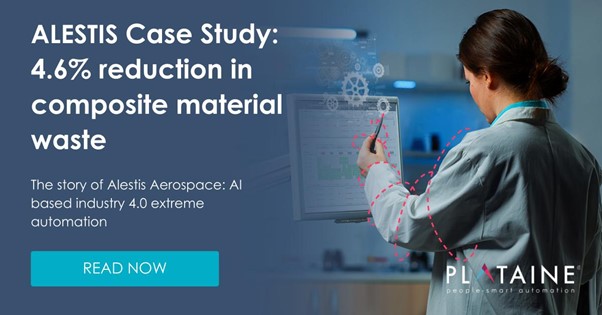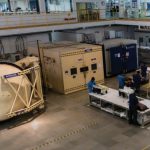Glossary
What is Smart Manufacturing?
Smart manufacturing is a broad term referring to the integration of various technologies and solutions to create a more efficient, automated, and data-driven manufacturing environment. This approach is a key component of Industry 4.0, which represents the fourth industrial revolution characterized by the fusion of digital and physical technologies such as IoT (Internet of Things), AI (Artificial Intelligence), and robotics.
Smart Manufacturing in Industry 4.0
Industry 4.0 has revolutionized manufacturing by introducing smart technologies that enable increased automation, improved communication, and self-monitoring. Smart manufacturing in this context refers to the use of these technologies to gain real-time insights and optimize production processes. It involves the integration of various systems, from supply chain management to production line automation, to create a cohesive and intelligent manufacturing environment.
Key Components
- Smart Manufacturing Technology: This encompasses a range of tools and technologies like AI, machine learning, big data analytics, and robotics. These technologies are used to analyze and optimize manufacturing processes, predict maintenance needs, and enhance productivity.
- Smart Manufacturing IoT: IoT in manufacturing involves the use of connected devices and sensors to collect and analyze data across the manufacturing process. This data is then used to improve efficiency, reduce waste, and make more informed decisions.
- Smart Manufacturing Solutions: These are specific tools or systems designed to address challenges in manufacturing. They range from inventory management systems to advanced scheduling tools, all integrated to work seamlessly within the smart manufacturing framework.
Benefits of Smart Manufacturing
Smart manufacturing provides a wealth of advantages, fundamentally transforming the efficiency, productivity, and sustainability of manufacturing operations. By integrating automation and real-time data analytics, smart manufacturing leads to swifter production times and minimizes errors, thereby amplifying both productivity and efficiency. It also enhances quality control, as manufacturers equipped with smart technologies can more adeptly monitor and ensure the quality of their products, guaranteeing consistency and heightened customer satisfaction. In terms of cost, smart manufacturing is a game-changer, optimizing processes and curtailing waste, which translates to substantial cost reductions. Safety is another critical benefit; automated systems coupled with predictive maintenance significantly diminish the risk of workplace accidents and equipment failures, promoting a safer working environment. Moreover, the approach champions sustainability by reducing resource consumption and waste, aligning manufacturing processes with eco-friendly and sustainable practices.
Challenges of Smart Manufacturing
Despite its many benefits, smart manufacturing also presents several challenges that need to be addressed:
High Initial Investment: The adoption of smart manufacturing solutions typically necessitates a substantial initial financial commitment. This investment is not just limited to procuring cutting-edge technology and equipment but also extends to the costs associated with training employees to proficiently use these new tools. For many businesses, especially small to medium-sized enterprises, this can be a significant barrier, as it requires a considerable allocation of resources before any tangible return on investment is seen.
Cybersecurity Risks: As smart manufacturing relies heavily on interconnected systems and the Internet of Things (IoT), it inherently increases the vulnerability to cyber attacks. These attacks can range from disrupting manufacturing operations to stealing sensitive data, potentially causing severe financial and reputational damage. The challenge lies in constantly updating and fortifying cybersecurity measures to protect against evolving threats, which requires ongoing vigilance and resources.
Skill Gap: The shift towards more technologically advanced manufacturing systems creates a demand for a workforce with specialized skills. There is a growing need for professionals who are not only adept in traditional manufacturing practices but also proficient in new technologies such as AI, robotics, and data analytics. This skill gap poses a challenge as the current workforce may need additional training, and there may be a shortage of new talent with the necessary expertise in the job market.
Integration with Existing Systems: Integrating new smart technologies into existing manufacturing setups can be a complex and time-consuming task. Many manufacturing facilities have legacy systems that were not designed to communicate with modern, smart technologies. This incompatibility can lead to significant challenges in ensuring seamless integration, requiring custom solutions or even complete overhauls of existing systems. Additionally, this process often demands careful planning and execution to avoid disruptions to ongoing operations.
Addressing these challenges is crucial for businesses to fully realize the benefits of smart manufacturing and stay competitive in an increasingly technology-driven market. While the initial hurdles may be significant, the long-term advantages of enhanced efficiency, productivity, and adaptability can far outweigh the initial challenges faced during implementation.
The Future of Smart Manufacturing
The future of smart manufacturing promises a landscape rich with innovation and the seamless integration of emerging technologies. This evolution will be marked by an increased reliance on automation, as advancements in robotics and artificial intelligence pave the way for more autonomous systems. This not only improves efficiency but also significantly reduces the need for manual labor.
Simultaneously, the sophistication of data analytics tools will grow, enabling manufacturers to delve deeper into the nuances of their operations. This enhanced insight will foster more informed and strategic decision-making processes. Alongside these developments, smart manufacturing will increasingly support customization and flexibility in production processes. This adaptability will be crucial in allowing manufacturers to swiftly respond to the ever-changing demands of the market.
Sustainability will also take a front seat in the journey of smart manufacturing. The industry is expected to continue its shift towards practices that reduce environmental impact, echoing the global call for more sustainable operations. In addition, the integration of collaborative robots, or cobots, designed to work alongside human workers, will further enhance productivity and safety in the manufacturing environment.
Another key development will be the rise of edge computing. By processing data closer to its point of origin, edge computing promises faster and more efficient handling of data within manufacturing settings. This technology is set to revolutionize the way information is managed and utilized in manufacturing processes.
Overall, the future of smart manufacturing is one of harmonious synergy between technology and human ingenuity, leading to more efficient, adaptable, and sustainable manufacturing practices.
In conclusion, smart manufacturing represents a significant leap forward in the way we produce goods. By harnessing the power of technology, it not only improves efficiency and productivity but also opens up new possibilities for innovation and sustainable practices. As the industry continues to evolve, it will be crucial for manufacturers to adapt to these changes to remain competitive and meet the demands of a rapidly changing global market.
Learn more
Proactive Intelligence In Manufacturing






